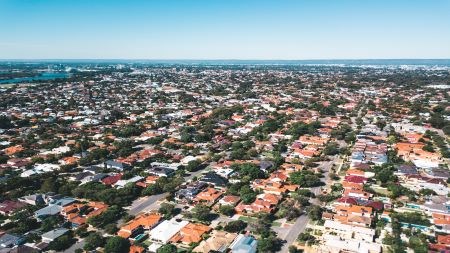The PayProp Rental Index annual review for 2020 confirmed the devastating effects of the Covid-19 lockdown on the residential rental market in South Africa.
In the final quarter of 2020, rental growth year on year was even lower than in the second and third quarters of 2020. In November, for the first time since the index was launched in 2012, growth was negative - the average rent was 0.3% lower than in November 2019.
Available data
The Tenant Profile Network’s (TPN) annual national market report published at the end of 2020 showed that vacancies in the residential property market had more than doubled since the beginning of the year - from 5% to 11%.
PayProp’s Rental Index showed that rental growth dropped from 3.2% in the first quarter of 2020 to 1.6% in the second quarter, to 1.5% in the third quarter and just 0.2% in the fourth quarter. In rand terms, the average rent increased from R7 844 in the fourth quarter of 2019 to R7 854 in the same quarter of 2020 – just R10 in 12 months.
PayProp head of data analytics, Johette Smuts, says that average rental growth was already under pressure coming into 2020, slowing even before the pandemic took hold.
“Four years ago at the start of 2017, rental growth rates were above 7%. Since then, growth trended downward and then remained more or less static between 3% and 4% for most of 2018 and 2019. Rental growth in the first quarter of 2020 still followed that trend, at around 3.2%.”
Why this trend is emerging
Smuts says a number of factors impeded rental growth over the past year.
First and foremost is the loss of income due to the lockdown. As a result, many tenants simply couldn’t afford increases in rent.
Second, the demand for higher-priced properties dropped off significantly, and landlords were left with little choice but to lower their expectations when determining rentals.
Third, many short-term and leisure rental properties moved onto the long-term rental market in 2020, after a sharp decline in tourism, both locally and from international visitors. This led to an oversupply of housing – particularly in tourism hotspots like KwaZulu Natal and the Western Cape - putting further downward pressure on rental prices.
Finally, in 2020 many tenants chose to take advantage of historically low interest rates by buying instead of renting. This exit of tenants from the rental market resulted in an additional oversupply of rental properties to the already overstocked pool, putting further pressure on rentals.
Importance of working with a rental agent
In the current economic climate many landlords may be tempted to go it alone and dispense with the services of a rental agent in an attempt to save on agency fees. However, this may be short-sighted for a number of reasons.
Reliable rental agents have access to all the tools needed to attract suitable tenants and fill vacancies more quickly. Landlords, on the other hand, usually have to rely on gut feel about the tenants who apply to rent their properties. They aren’t readily able to check references and verify identity and income claims. This can easily result in investment properties being occupied by unsuitable tenants who don’t pay their rent on time – or at all.
A number of tenants are also inclined to neglect rental properties, so ongoing regular inspections are essential to avoid costly repairs and maintenance. Agents are trained to carry out home inspections, whereas landlords aren’t always aware of what to look out for.
In the event of evictions, rental agents are well-equipped to deal effectively with the necessary legal and logistical steps with least inconvenience to the landlord.
For absentee landlords, the importance of working with a reliable rental agent cannot be overemphasised. Prevention is always far better than cure, so for landlords who aren’t nearby to keep an eye on their investments, a rental agent is essential.
Expectations in 2021
Although lockdown restrictions have been lifted slightly they are still in place, and economic revival continues to be strained.
Affordability remains an important consideration for consumers in general, and this includes tenants. As a result, rental growth is expected to remain muted for some time. To be successful under these conditions rental agents and landlords will need to be extra vigilant in screening new tenant applicants, and be prepared to go the extra mile to hold on to high-quality existing tenants.




